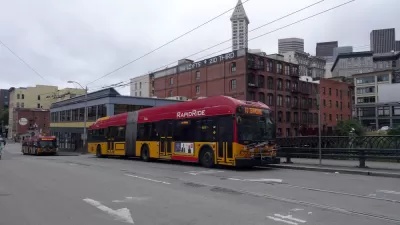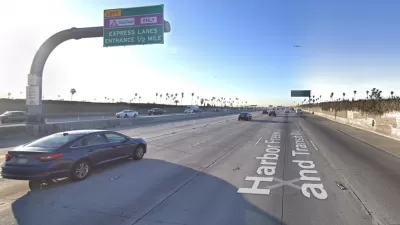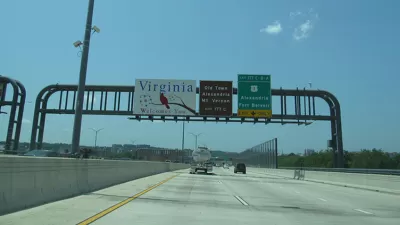High Occupancy Toll lanes, long derided as 'Lexus Lanes', may have to be re-dubbed. Statistics kept by the Washington State DOT on a new Hwy 167 HOT lane show that most users are not driving fancy luxury cars.
"HOT lanes have sometimes been dubbed "Lexus lanes" because of the belief that only rich drivers would be able to afford them and only they would pay to buy their way into car-pool lanes. The first three months of traffic indicate that they are more like "Ford lanes." That is, the most common make of vehicle that used the HOT lanes from May through July was Ford (7,500), followed by Chevrolet (6,800), Toyota (2,500) and Honda (2,400).
DOT Secretary Paula Hammond said her agency will ask the Legislature in 2009 for permission to begin studying the possible extension of HOT lanes to Interstate 405. Drivers on Highway 167 HOT lanes indicated they are more willing to pay a toll to drive in the car-pool lanes if the trip is longer.
• The biggest complaint: There are too few access points to get into and out of HOT/HOV lanes. Crossing a double line earns a driver a $124 ticket.
• The HOT lanes were closed to paying customers 45 times over five months, restricted only to car pools, buses and motorcycles. The HOT lanes may be closed to toll customers if they become too congested.
• The state is collecting about $25,000 a month in tolls."
FULL STORY: Plenty of Fords pay to use fast lane

Planetizen Federal Action Tracker
A weekly monitor of how Trump’s orders and actions are impacting planners and planning in America.

Map: Where Senate Republicans Want to Sell Your Public Lands
For public land advocates, the Senate Republicans’ proposal to sell millions of acres of public land in the West is “the biggest fight of their careers.”

Restaurant Patios Were a Pandemic Win — Why Were They so Hard to Keep?
Social distancing requirements and changes in travel patterns prompted cities to pilot new uses for street and sidewalk space. Then it got complicated.

DC Area County Eliminates Bus Fares
Montgomery County joins a growing trend of making transit free.

Platform Pilsner: Vancouver Transit Agency Releases... a Beer?
TransLink will receive a portion of every sale of the four-pack.

Toronto Weighs Cheaper Transit, Parking Hikes for Major Events
Special event rates would take effect during large festivals, sports games and concerts to ‘discourage driving, manage congestion and free up space for transit.”
Urban Design for Planners 1: Software Tools
This six-course series explores essential urban design concepts using open source software and equips planners with the tools they need to participate fully in the urban design process.
Planning for Universal Design
Learn the tools for implementing Universal Design in planning regulations.
Heyer Gruel & Associates PA
JM Goldson LLC
Custer County Colorado
City of Camden Redevelopment Agency
City of Astoria
Transportation Research & Education Center (TREC) at Portland State University
Camden Redevelopment Agency
City of Claremont
Municipality of Princeton (NJ)





























